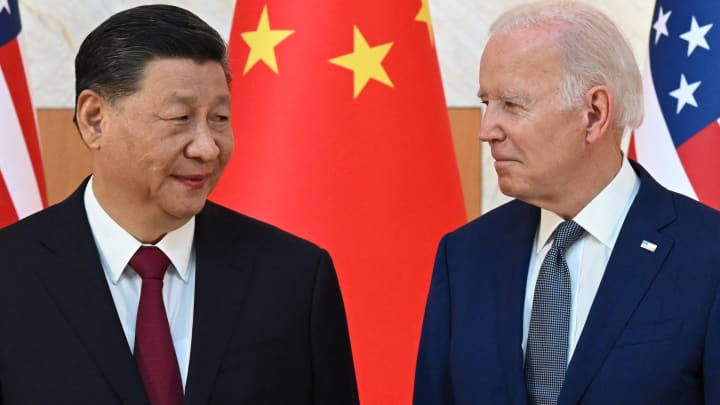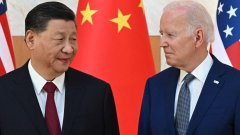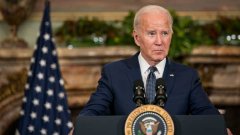
LONDON — Rare, high-stakes between U.S. President and Chinese counterpart on Wednesday come against the backdrop of a more fractured world, in which geopolitical relations no longer fall into a traditional West versus the rest model, a new survey of 21 countries has found.
International relations have become increasingly "a la carte," with countries more likely to "mix and match" their geopolitical alliances on individual matters rather than to fully commit to one side, the study by the European Council on Foreign Relations think tank and Oxford University found.
Pluralities of global citizens believe the West is in demise — with U.S. democracy and the European Union at risk of collapse within the next 20 years. They also find that increased economic ties with China are growing more appealing, according to polling of adults across 11 European countries and 10 non-European ones.
"Rather than clinging to the eirenic world of yesterday," leaders need to "understand the new rules of an 'a la carte game,' with respect to international relations and seek new partners across crucial issues facing our war-torn world," co-author and director of the ECFR, Mark Leonard, said of the findings.
The outcome of was considered a "determining, and even existential," factor in the future of the West, according to the survey, with the majority of respondents outside of Europe and the U.S. seeing Western nations as a bigger obstacle to peace than Russia, and more still viewing Moscow as the ultimate victor.
Almost three-quarters of non-European respondents who believed the EU could "fall apart" also expected Russia to win the war, while around one-third of those in the U.S. and in Europe shared the view.
For many, the conflict is considered a "proxy war" between the U.S. and Russia, with majorities in Russia, China, Saudi Arabia and Turkey saying the two Cold War powers are "already at war."
It comes as overall optimism in the outlook of the U.S. wanes. Almost half of respondents in the country say they feel pessimistic about the future of the U.S. This compares with majorities of nationals in India, Indonesia, China and Russia, who are optimistic about their countries.
China, meanwhile, is experiencing increased international appeal, with pluralities of citizens — particularly those in middle and emerging powers — saying they are sanguine on the prospect of closer economic ties with China. That is despite the country's slowing growth prospects.
Majorities in Russia, Saudi Arabia, South Africa and Indonesia, along with 50% of people in Turkey, said they feel closer to Beijing than to Washington on trade. Many among them expressed acceptance for various types of Chinese economic presence in their countries, including Chinese ownership of domestic sports teams, newspapers, tech companies and infrastructure.
Still, Western nations continued to enjoy superior popularity on values such as human rights, leadership, security and overall living standards.
If forced to choose, the survey found that respondents almost everywhere said they would prefer to be part of an American bloc, rather than cooperating with China and its partners. That was the majority view in South Korea, India, Brazil, South Africa and Turkey, with 50% of respondents from Saudi Arabia also sharing the opinion. Russia was the single outlier on that question, with a majority indicating a preference toward China.
The authors of the report said the findings suggest that many citizens now believe that their country can combine the benefits of European values with U.S. security guarantees, while keeping China as an economic partner.
They added that global leaders should "adopt a policy of 'strategic interdependence' to straddle this new landscape, and establish a broad coalition of partners across multiple issues."
Biden and Xi are meeting in San Francisco on Wednesday in a renewed effort to stabilize U.S.-China relations, which have grown strained amid trade and security concerns and ongoing wars in Ukraine and .



